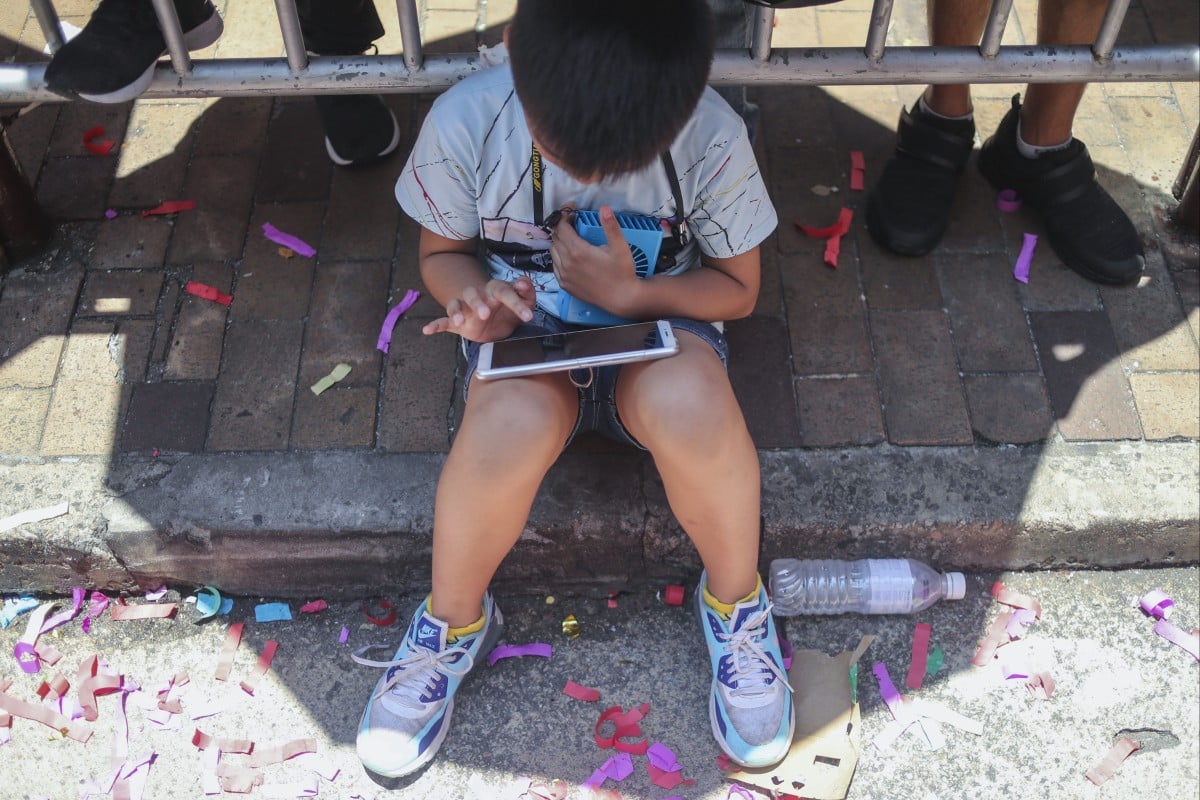 Hong Kong parents are struggling to control their children’s use of gadgets. Photo: Winson Wong
Hong Kong parents are struggling to control their children’s use of gadgets. Photo: Winson WongParents in Hong Kong are struggling to limit their children’s usage of electronics, a survey has found. This can lead to hostile situations, including insults and physical threats in nearly 30 per cent of cases.
Social worker Wu Yan-yan, acting supervisor of Tung Wah Group of Hospitals’ Integrated Centre on Addiction Prevention and Treatment, said on Thursday that the increased use of gadgets during the Covid-19 pandemic had continued.
“If the children’s use of electronic devices worsens into internet addiction, this won’t just affect them, but also cause serious problems for the mental health of their family members and the relationships with their family,” Wu said.
The centre polled 712 parents of Primary One to Form Six pupils between last September and December. About 28.5 per cent of respondents said they had overreacted to their children’s usage of electronic devices with verbal insults, physical threats or unreasonable punishment.
Thirty-five per cent said there had been heightened family conflict from their children’s use of electronic devices. Half of the respondents had yielded an unsatisfactory mental health score in the survey.
Just over half of the children spent up to two hours on their gadgets every day for leisure purposes. Eighteen per cent reportedly used them for at least four hours and 5.5 per cent for six hours or more.
New Zealand issues new recommendations for screen use in school
Heightened conflict over device use was particularly serious for parents with children in Primary Five and Six. Over half of respondents with children in these two grades expressed doubts as to whether they were competent parents when handling their children’s use of electronic devices.
Wu said families with children in the final two years of primary school were more susceptible to conflict on this issue. These are the grades when parents tended to become more anxious over pupils’ academic performance when applying for secondary schools.
However, the survey found that only 6.5 per cent, or around 46, of parents had sought help over their children’s use of devices.
“This shows that parents have a low awareness of the need to get help, or that they don’t know how to help [their situation] or they are worried about what could happen if they sought help,” Wu said.
Brenda Chung Yin-ting, senior section manager for youth and family services at the Tung Wah Group of Hospitals, said frontline staff had noticed many parents were not in a good state mentally.
She said support groups had been able to help parents understand how to communicate and establish rules with their children.
“They can bring these skills [from support groups] home to discuss how to use electronic devices with their children in a respectful and open manner. Sometimes, this can establish rules for the entire family to avoid internet addiction,” Chung said.
A 45-year-old housewife, who gave her name as Joyce, sought help from a support group for three months. She said she had managed to improve relations with her 12-year-old daughter after seeking help.
Joyce said she decided to give professional help a go after both harsh limits and gentle reminders failed to convince her daughter to drop her phone while resulting in a frosty relationship.
A turning point came when Joyce implemented a support group-style talk at home. She brought her husband, daughter and four-year-old son to the table for everyone to talk about their day and any unresolved discontent they have felt.
“I think family relations have improved, everyone is more willing to discuss with one another, instead of finding the other person annoying when they raise issues, completely unwilling to listen,” she said.
“I have also become less nervous and more confident in my beliefs.”
